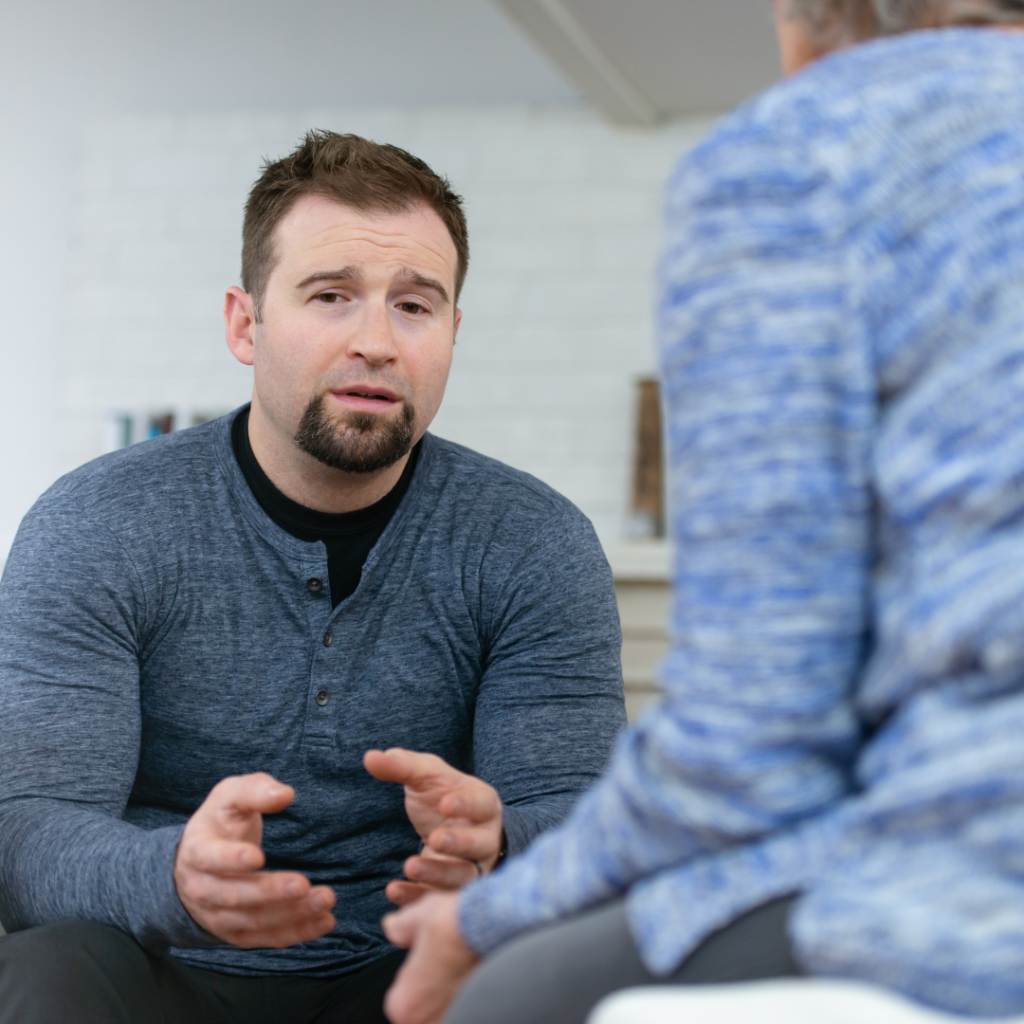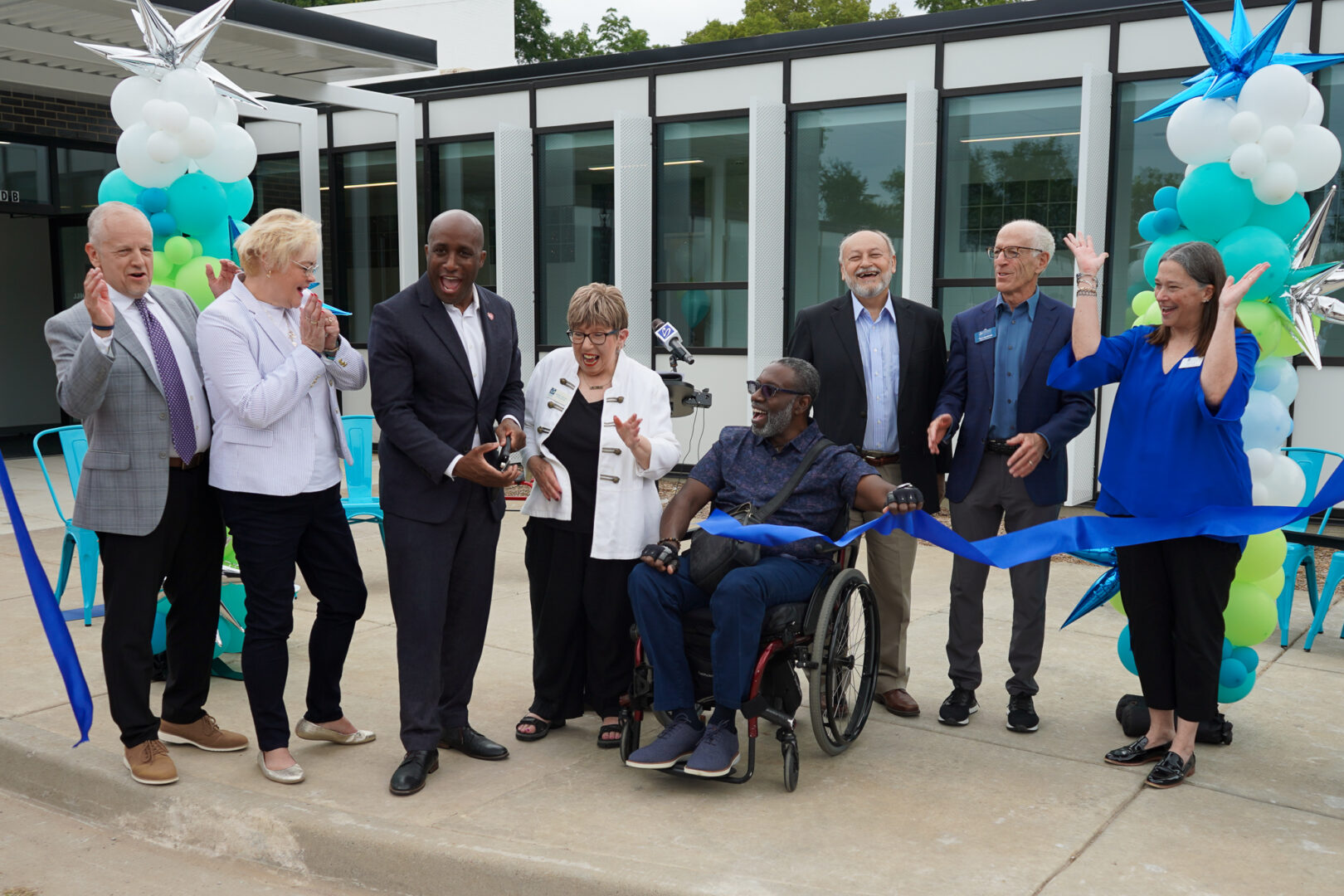When speaking about our Domestic Violence Programming and the work we do with survivors, we often hear the question: “Why does she stay?”. But what if we flipped the question and asked “Why doesn’t he stop?”. This is exactly what our domestic violence programming team does through their Batterers Intervention Program.
The Batterers Intervention Program (BIP) is an outpatient therapy group for perpetrators of domestic violence. It is designed to focus on power and control and creates a reflective space for perpetrators to shift their mindsets from victim blaming to taking accountability for their actions. The program is one piece of a collective group of domestic violence therapy services designed to heal domestic violence survivors and eliminate family violence in our communities.
“I love this program because it is proactive rather than reactive,” says Cassandra Whitney, Clinical Manager for tthe program. “We’re not just tackling the abuse after it happens, but actively trying to prevent future abuse.”
According to a Family Court Reviews article by Grych, “Children who observe parental conflict, hostility, and violent behavior are more likely to use abusive behaviors toward their significant others in both adolescence and adulthood.” Our program works to stop the cycle of domestic violence by teaching offenders to take accountability for their actions and highlighting that domestic violence is a choice. And one that they do not have to make.
“I tell the men [and women] in the program that my goal is to never have your child be my client,” says Cassandra.
How the Program Works

Entry to the program begins with a call to our intake line. The intake coordinator will collect the individual’s information and place them on our waitlist to see a therapist. This process usually takes about 2-4 weeks.
When a spot is available, the perpetrator will work with our therapists for 4-5 sessions to determine the number of group sessions needed to complete the program. The average length of the program is 26-58 weeks, the number of sessions depends on the lethality of their actions. All of our Batterers Intervention Program groups are virtual, allowing our team to work with individuals across the state.
While in the program, the offenders work through identifying and changing destructive thought patterns that “justified” their abuse.
“I’ve seen immense change in the men [and women] that go through this program,” states Cassandra. “I see them going from victim-blaming to being accountable for their actions with current and past partners. They are able to reflect on the impact it had on their children and change those patterns.”
Upon completion of their sessions, the perpetrators graduate from the program, some opt to stay past their assigned sessions to continue receiving treatment. These individuals are not charged for their participation past their assigned sessions.
In rare cases, offenders choose not to graduate but this is not for the reasons you may think. These individuals opt not to graduate, and continue attending classes and paying fees choose to as a way to continue holding themselves accountable for their actions. Fees collected from individuals who are eligible to graduate but choose not to are put into a scholarship fund.
Setting the National Standard
There are numerous programs throughout the country dedicated to working with the perpetrators of domestic violence. But what sets our program apart is the assessment process, which is the most thorough in the country. While most batterer intervention programs are run by therapists, very few are aligned with victim services and shelter services like Synergy.
This assessment process and unique alignment are what sets our Batterers Intervention Program apart, gaining national attention and praise. In Missouri, the program was recently named the official program for the state and is the preferred provider for the state parole board and Children’s Division.
Finding Balance to Combat Burnout
Most therapy-based programs see an average burnout among their employees at 18 months, but this is not the case with our domestic violence clinical team. Including the Batterers Intervention Program with other therapy services for domestic violence survivors creates a balance that inspires the team.
“We’re able to hear what both sides [of domestic violence] say and validate their experiences,” says Cassandra. “When we speak with kids in sessions and hear their viewpoints, we can tell the perpetrators how violence is perceived from a child’s perspective. Seeing both sides, and the impact of the work, renews our hope and keeps us from burning out”




